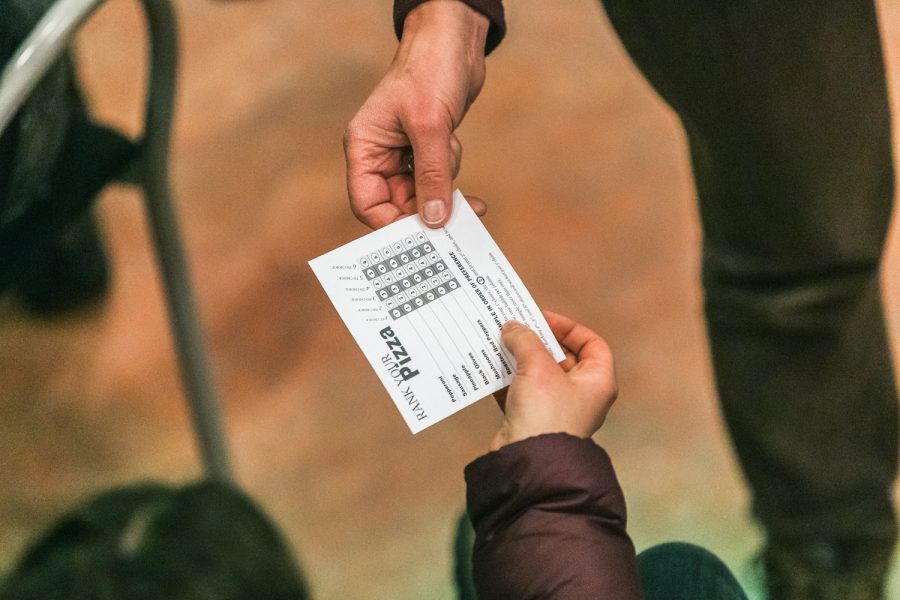Can Every Vote Count?
March 6, 2019
Every Vote Counts (EVC) is a national nonpartisan organization trying to strengthen our representative democracy. The student-lead organization asks how everyone’s vote can matter and how to get political parties to represent more Americans. For them, the status quo is insufficient.
Out of the three in five Americans who voted in the 2016 election, a fourth disliked both candidates, and another third had reservations, according to CNN exit polls. And although six in ten Americans feel neither party represents their interests according to Public Religion Research Institute, Clinton and Trump got 95% of the votes. After all, a vote for another candidate would be a throwaway, or a small protest against the establishment. EVC is promoting solutions on campuses across the country. Lucy Montgomery, a second-year politics major, started an EVC chapter at Whitman last fall to help mobilize the community.
“I noticed that a lot of people were politically aware, but not necessarily politically engaged,” Montgomery said. The Whitman chapter is focusing on civic engagement and legislative advocacy this semester. They’re partnering with the STAR Project to educate ex-felons about their voting rights and help them re-register to vote in Washington state. And EVC is promoting ranked-choice voting (RCV), an alternative electoral process that has voters rank their preferences instead of choosing just one. RCV is not the sole focus of EVC, but “most chapters around the country also chose it, so it’s becoming a national project,” Montgomery said.
In a single-winner RCV election, voters are asked to rank the candidates in order of preference. A candidate wins if they get more half of the first-choice votes. If no candidate gets the majority, then the candidate with the fewest first-choice votes is eliminated. The voters who preferred that candidate will then have their vote alloted to their second-choice. This process continues until a candidate breaks the majority.
FairVote Washington is another nonpartisan organization pushing RCV for a fairer democracy. Its Chairwoman, Lisa Ayrault, spoke on campus last week after the Whitman EVC chapter reached out for a presentation.
“Voters are telling us it’s [plurality voting] not working by not showing up at the polls,” Ayrault said. “But voter turnout is going up where ranked-choice voting is being used.”
It’s clear to Ayrault why this is the case.
“The electorate is much more engaged when people say, ‘Oh my voice matters, I don’t have to be worried about throwing out my vote, I don’t have to be choosing between two evils, and if my first choice can’t win my vote will stay in play,’” Ayrault said.
By demanding candidates build broader coalitions of support, Ayrault and Montgomery believe RCV could fundamentally improve the campaign process with less divisive and more inclusive campaigns.
“Once we understand the rules, we try our best to win, right?” Ayrault said. “And the rules in plurality voting clearly make negative campaigning effective. That’s why people do it. It’s not that they’re bad people, it’s that they know if they can tear down their opponent that’s the same as elevating them when the voters only get one vote.”
But when the rules change, and tearing down your opponent means rejecting their supporters’ second and third choice votes, divisive rhetoric is less effective.
“Over time, candidates learn that if they want to win in a ranked-choice election, don’t bother with negative campaigning—it’s actually counterproductive,” Ayrault said.
RCV also encourages more candidates to run without fear of splitting votes, and incentivizes candidates to pursue broadly supported and less radical agendas. Montgomery believes it “could help bridge the divide between parties” by urging candidates to find common ground.
Several cities have adopted RCV in the last two decades, and Maine became the first state to implement it last November after Mainers voted in favor in 2016. Chairwoman Ayrault praised higher voter turnout, more diverse candidates and less mudslinging in cities that adopted RCV.
Voting in her home state of Maine last November, Claire Maurer, a second-year politics major, said the process was “just like a lot of other things that you do in your life—prioritization, if one doesn’t work out go with your next best option.”
Coming from a purple state with a strong independent bloc, Maurer hopes RCV could allow more cooperation between parties.
“It [RCV] goes across party lines. And an issue that anyone can agree on, I think, is that our politics are too partisan,” Maurer said. “I think this is something that supports, maybe not encourages, but supports bipartisanship.”
Ayrault, Montgomery and Maurer are all optimistic RCV will continue to win support, and see an electoral future that values preference and counts ever vote. FairVote Washington plans to get RCV on the state ballot in the coming years, and its chairwoman said she is “confident it’s going to be successful and we’re going to do it.”
Correction: A previous version of this article incorrectly associated several phrases with EVC (the organization Every Vote Counts), where it should have been RCV (ranked-choice voting).






